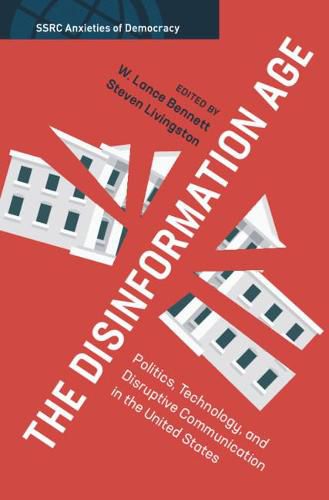Readings Newsletter
Become a Readings Member to make your shopping experience even easier.
Sign in or sign up for free!
You’re not far away from qualifying for FREE standard shipping within Australia
You’ve qualified for FREE standard shipping within Australia
The cart is loading…






The intentional spread of falsehoods - and attendant attacks on minorities, press freedoms, and the rule of law - challenge the basic norms and values upon which institutional legitimacy and political stability depend. How did we get here? The Disinformation Age assembles a remarkable group of historians, political scientists, and communication scholars to examine the historical and political origins of the post-fact information era, focusing on the United States but with lessons for other democracies. Bennett and Livingston frame the book by examining decades-long efforts by political and business interests to undermine authoritative institutions, including parties, elections, public agencies, science, independent journalism, and civil society groups. The other distinguished scholars explore the historical origins and workings of disinformation, along with policy challenges and the role of the legacy press in improving public communication. This title is also available as Open Access on Cambridge Core.
$9.00 standard shipping within Australia
FREE standard shipping within Australia for orders over $100.00
Express & International shipping calculated at checkout
The intentional spread of falsehoods - and attendant attacks on minorities, press freedoms, and the rule of law - challenge the basic norms and values upon which institutional legitimacy and political stability depend. How did we get here? The Disinformation Age assembles a remarkable group of historians, political scientists, and communication scholars to examine the historical and political origins of the post-fact information era, focusing on the United States but with lessons for other democracies. Bennett and Livingston frame the book by examining decades-long efforts by political and business interests to undermine authoritative institutions, including parties, elections, public agencies, science, independent journalism, and civil society groups. The other distinguished scholars explore the historical origins and workings of disinformation, along with policy challenges and the role of the legacy press in improving public communication. This title is also available as Open Access on Cambridge Core.